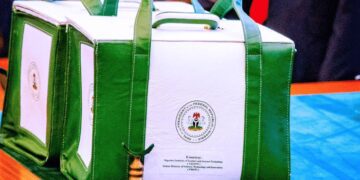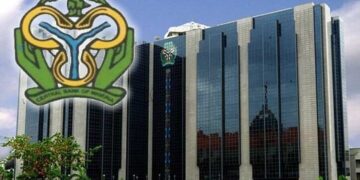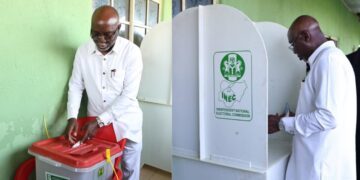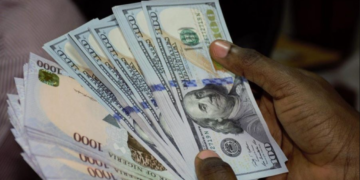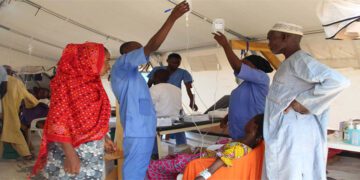The Central Bank of Nigeria (CBN) has said that the broad money supply (M²) increased by 64.6 per cent year-on-year, YoY, to N108.95 trillion in September 2024, from N66.17 trillion in the corresponding period of 2023.
The apex bank said the massive rise in money supply across the financial system has seen narrow money (M1), growing by 40.7 per cent YoY to N35.6 trillion in September 2024 from N25.3 trillion in September 2023.
Broad money is a category for measuring the amount of money circulating in an economy. It is defined as the most inclusive method of calculating a given country’s money supply and includes narrow money along with other assets that can be easily converted into cash to buy goods and services.
According to the Central Bank of Nigeria, CBN, Money and Credit Statistics data released, yesterday, the M² has continued to increase since March 2024.
The report also showed the increase in money supply followed positive changes in its components.
Quasi-money which includes savings deposits, time deposits, and other near-money assets, rose significantly.
The data showed that Quasi Money grew by 58.7 percent YoY to N73.4 trillion from N46.2 trillion in September 2023, as demand deposits increased by 37.5 percent YoY to N31.5 trillion in September 2024 from N22.9 trillion in September 2023.
Similarly, currency outside banks increased by 48.8 percent YoY to N4.02 trillion in September 2024 from N2.7 trillion in September 2023.
The increase in M² reflects the high government domestic borrowing from the private sector.
According to the CBN’s data, credit to the government increased by 89.7 percent YoY to N42 trillion in September 2024 from N22.13 trillion in September 2023.
On the other hand, credit to the private sector rose YoY by 27.6 percent to N75.9 trillion in September 2024 from N59.5 trillion in August 2023.
Resulting in a 44.5 percent YoY rise in net domestic credit to N117.9 trillion in September 2024 from N81.6 trillion in the corresponding period of 2023.
Accordingly, Debt Management Office, public debt report showed that domestic debt stood at N65.65 trillion ($46.29 billion), accounting for 54 percent of the total public debt, while external debt stood at N56.02 trillion ($42.12 billion), representing 46 percent. Additionally, the 36 states and the Federal Capital Territory, FCT have an external debt of $3.1 billion and a domestic debt of N4.068 trillion while the balance of the total public debt is due from the Federal Government.
Furthermore, increase in M² also indicates increase interest rates on bank deposits with the CBN prompting.
Also the increase in interest rates on bank deposits with CBN Standing Deposits Facility, SDF, is another factor for the rise in M².
Recall that the CBN announced that the SDF rate, applicable to deposits made by banks at the CBN, had been increased to 25.75 per cent while the Standing Lending Facility was adjusted to 31.75 per cent following increases in rates by the CBN Monetary Policy Committee (MPC) in August.
A development the sees banks’ deposits in the CBN’s SDF rising sharply by 400 percent MoM to N3.97 trillion in September 2024 from N790.87 billion in August 2024, statistics from CBN Financial Data showed.
Analysts at Cowry Asset Management PLC have projected interest rates to remain higher in the fourth quarter, Q4’24.
In their macroeconomic outlook for Q4’24, they said: “We project that interest rates will remain elevated in Q4’24.
“The increase in Cash Reserve Ratio (CRR) to 50 percent for commercial banks will constrain demand for Treasury Bills by banks as well as drive up money market rates, particularly interbank rates.
“Lending rates will trend further northwards as banks reprice their risk assets to factor in the cost of the increased Cash Reserve Ratio.”



















